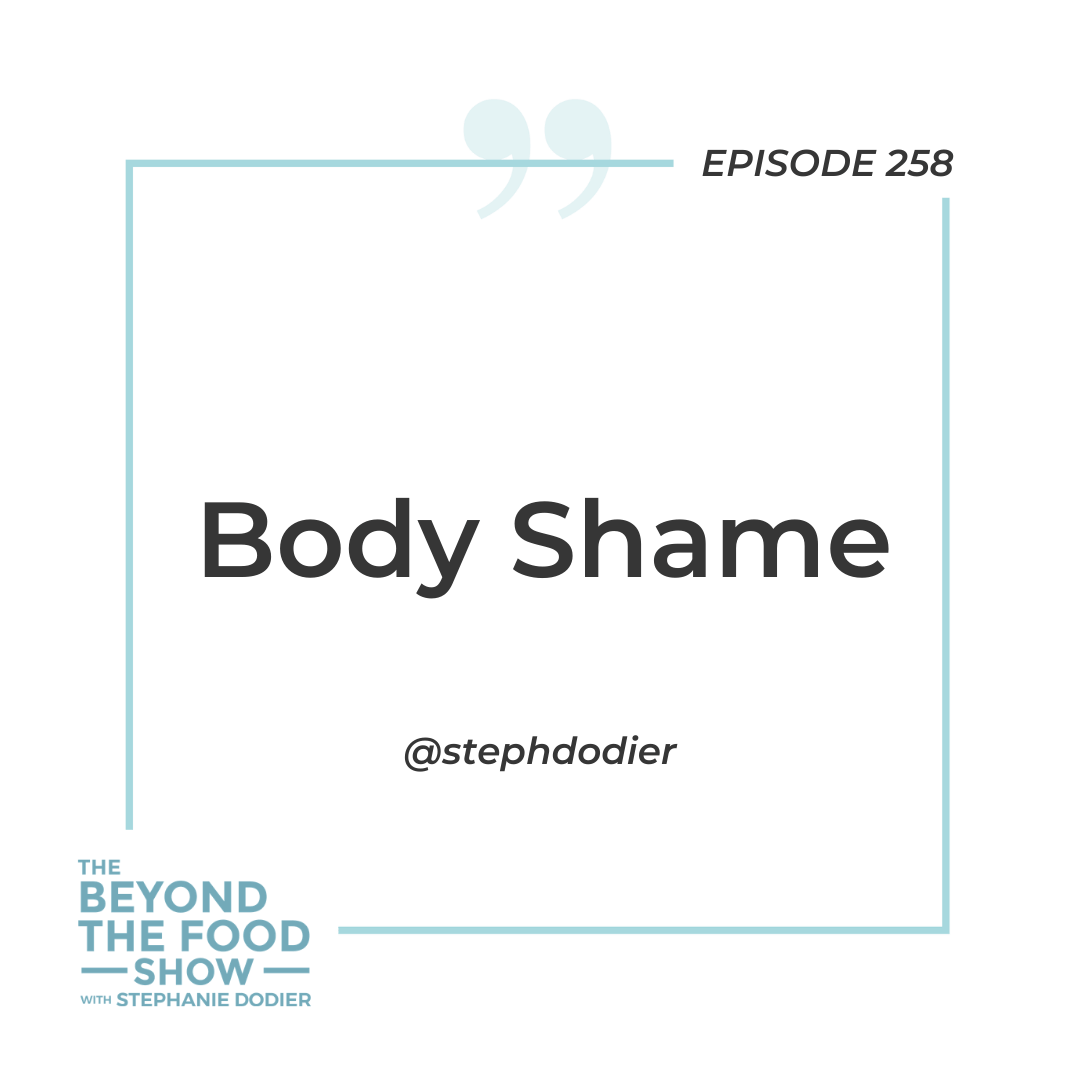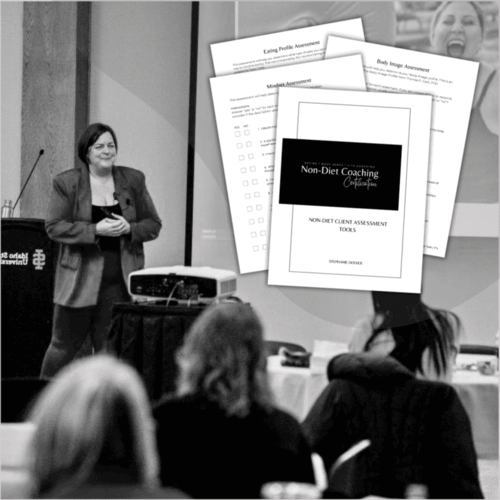
Body Shame
When I began the second phase of my life, one of the first books I read was “The gift of imperfection by Brene Brown. I was stunned by what she was writing. It explained everything that caused me pain up to then. The fear of vulnerability, fear of being seen as imperfect by the world.
I remember vividly thinking: “Why had no one told me about this before? I’m 39, and I’m just learning about this?” That book and others sparked my mission “Beyond The Food”.
I have a pile of journals in the corner of my bedroom. Journal that I wrote in over the last ten years and I recently was reading in a journal entry from 2011 after watching Brene Brown Ted X talk, “The power of vulnerability”. I wrote:
“Watched Brene Brown Ted X talk, and my life struggles makes so much more sense to me now. To please everyone around me, I do everything perfectly or try really hard to do so anyway. I’ve moulded my life to meet these expectations of myself.
What am I ashamed of?
I need to feel and live my shame to free myself. What am I ashamed of?”
What do you think I listed first o the list of things I felt shame for? Yup, my body. My weight. My thighs. Yet, I was at the smaller adult weight I had been my whole life at this point in my life.
Body shame is what kick-started my descent into perfectionism. No matter what I did, I couldn’t rid myself of the shame I felt for my body. Like millions of other women, I master up a plan to offset my inability to get a “proper body” by being perfect everywhere else.
Familiar?
Why is body shame so powerful? To answer this question, we must first step back and understand shame itself before associating it with our body.
You can listen to this article by listening to our podcast.
What you’ll learn listening to this episode:
- What is shame
- How shame applies to our body image
- Why it’s so important to release body shame
- How to release body shame
What is shame
Shame is an emotion. Shame is self-conscious emotion. Just like any other emotions, we feel shame in our body. It is often felt as heat in our upper body.
We feel shame when we violate the social norms we believe in.
Shame informs us of an internal state of inadequacy, unworthiness, dishonor, regret, or disconnection. It informs us that we are not in alignment with the tribe’s beliefs, norms or behavioral patterns.
Shame is powerful. We feel humiliated, exposed and small and are unable to look another person straight in the eye. We want to sink into the ground and disappear. Shame is powerful because it must serve as a way to bring us back into the fold into the right behaviors in compliance to the tribe’s norm.
What is body shame
Body shame is just one of the many expressions of shame. We feel shame for our body looks, appearance, size, weight, form, etc. We feel shame because we aren’t in alignment with our tribe’s norm with regards to our body looks. Our body isn’t respecting the norm, and it should, so we feel shame and take action to come back to compliance with the norms of the tribe.
For women living in western patriarchal societies, the norm for women’s bodies is thinness and youth. The compliance mechanism is diet culture. The main lever of compliance is dieting and anti-ageing. I like to refer to the scale as the instrument of torture of diet culture.
Shame differs between men and women. Not in its process or how it feels in the body but in the WHAT men and women feel shame for. For women is about the expectations of what we ought to be: body, motherhood, capacity to do it all…. For men, it’s about being perceived as weak.
Shame is different for women
According to research, women are quicker to feel shame, which can be explained when we understand a patriarchal society’s social construct. Patriarchy uses shame against women more often and more broadly to keep women complying with societal norms. People identifying as women must be kept quiet and subdue in order for the male to be in power, and shame is the most efficient way to move women in compliance with the patriarchal structure.
Interesting research has also shown that teenagers feel shame more intensely than adults, which is somewhat normal when we understand that emotional resilience is built with exposure. This explains why women are so easily indoctrinated into the patriarchal beauty standards like the thin ideal in the teen years. This is why the “Good Girl Syndrome” is so prevalent in adult women. I taught on Good Girl Syndrome show #249.
Shame means survival
Shame is powerful, and throughout our entire evolution as a specie, it serves as a survival mechanism. We needed to belong to a tribe for our survival, and being shunned by the tribe meant death. Humans respond to shame in such an intense manner that it bypasses our cognitive function and goes deeply into our nervous system to get you to react right away.
Although today, we no longer belong to the tribe to survive, we are still wired to react to shame in the same way. Shame works as a way to keep you in compliance as long as you remain unconscious. That’s key here: consciousness versus unconsciousness.
Are we doomed to feel shame for our bodies as women unless we adhere to the “thin ideal”?
Hell no!
Here’s why: certain conditions must come together for someone to feel shame.
First, the person must be aware of having transgressed the norm.
Second, the person must also view the norm as desirable and binding because only then can the transgression make one feel truly uncomfortable.
Bingo!
Feeling ashamed requires our agreement
We must agree to the norm or expectation for our bodies for us to feel ashamed of our bodies.
You can choose to disagree with the norm and believe in a new norm that will effectively stop feeling the emotion of shame.
By the way, this applies to any form of shame.
That right, you can be fat and feel zero shame. How is this possible? Shame comes from your thoughts of unworthiness or judgement about yourself. For example, someone can be fat and feel zero shame because being fat means nothing about them; therefore, they will have no judgement thoughts about their body being big.
This also means that other people don’t have to say anything for us to feel shame. We only have to think that they do, and we create the emotion of shame for ourselves. Words or actions don’t have to be expressed to feel shame, only thoughts.
Shame is caused by our prediction of others’ judgment, which is truly our own judgment of ourselves. It is caused by your own judgment aka your own thoughts, not by your action or the actual size of our body.
Shame versus guilt: not the same
Guilt and shame aren’t the same. Guilt is focused on behavior. It’s not about you as a person.
Shame is focused on self. You are bad for having done THIS thing.
Shame is: I’m bad. Guilt is: I did something bad.
As Brene Brown says:
Guilt is: I’m sorry I made a mistake.
Shame is: I’m sorry I’m a mistake.
Why does body shame matter so much to women
Shame will keep you repeating patterns. It is what keeps you doing things you want to quit. Shame keeps you in this dichotomy state: I know Diet culture is bad for women, but I can’t stop myself from hating my body.
Shame is what keeps so effectively women stuck in diet culture.
Self-confidence and shame are related. Self-confidence is based on self-acceptance, and shame doesn’t grow in the presence of acceptance.
Shame will prevent you from being confident. You cannot feel shame for your body and be a confident person. You are your body; and you present yourself in your body to the world so if you feel shame for the vehicle in which your present yourself into the world, it will be impossible to be confident in the world.
This is why patriarchy has been so successful in oppressing women using their bodies. When women feel shame about their bodies, they lack confidence and remain small.
Sister, patriarchy will only remain powerful if we, as women, continue to buy into the body and beauty standards that it proposes to us.
The solution to stop feeling body shame is to dismantle our system of belief about women’s bodies.
How do we overcome body shame?
First, we investigate our belief system about our bodies. We believe in what our body should look like, its size, looks, and weight.
Ask yourself: What are the ways you are finding yourself unworthy? What ways are you judging your body?
Next, decide if those beliefs are serving you? Do you want to continue to believe them? You are empowered to believe in whatever you want; that’s the power of feminism. Feminism has officially liberated us from having to believe in patriarchy beauty standards for women. You get to pick and choose what you buy into.
Last, you create a new belief system. You change the thoughts you think about your body. You will need to move from unconscious thinking of your old beliefs to consciously think the new thoughts until they become automated.
That’s what we do in Conquer and Thrive. We take you through a step-by-step process to change your beliefs and create confidence.
Point to note that shame grows in isolation, secrecy. When we feel shame or potential for shame, we don’t want to be seen. This is why we wear the BLACK OUTFIT. If you don’t know what the black outfit means, go and listen to show #250.
We never feel shame about the things that everyone knows about and see. This is why when you accept your body, and you are comfortable about being in your body in public, shame melts away.
What on the other side, releasing shame?
When we do the work of releasing shame by opting out of the old belief system and adopting your new belief system, we create self-worth.
Self-worth is the opposite of body shame. Self-worth is this inherent sense of value as a person, with the right to be here just as you are, unconditionally.
I’m going to leave with self-coaching tip: The top three intentional thought my clients find the most effective in reversing body shame is ‘All humans are innately worthy” or “All humans are born worthy” or “Worthiness is innate”.
A woman feeling worthy and confident is diet culture’s worst nightmare!
Mentioned on the show:





